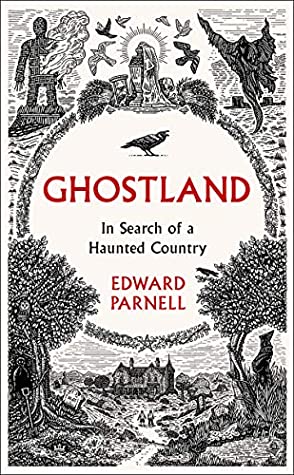In recent decades, thanks in large part to Jacques Derrida, the word haunted has shifted from primarily meaning some kind of ghost experience to one much wider in application (for example Bob Fischer’s ‘The Haunted Generation’ column in Fortean Times, bimonthly slices of fruity nostalgia evoking the strangeness of the 1960s, 70s and 80s). Parnell’s 2019 Ghostland: In Search of a Haunted Country uses it not in the manner of a paranormal gazetteer (which may disappoint some potential readers, especially those who spot Borley Rectory illustrated on the cover but find it mentioned only in passing on page one) but as shorthand for the deep-rooted tradition in British literature of engagement with supernatural themes.
Combining autobiography, travelogue and literary exegesis, Parnell identifies links between the authors he examines and the landscapes they inhabited. At the same time, in searching for stories that have influenced our culture he addresses his own ghosts in his vanished family – his parents and older brother felled by cancer – seeking consolation in the books, films and television programmes, not all of them uncanny by any means despite the title, which shaped him.
He covers authors famous and obscure. Some of the obvious names are here: M R James, William Hope Hodgson, Alan Garner, Robert Aickman, Algernon Blackwood, Arthur Machen. But plenty of less-well known writers are included, along with some, such as Thomas Hardy, Rudyard Kipling and Elizabeth Jane Howard, whose reputations primarily rest on work other than their weird tales. Visual media are not neglected, with the inclusion of horror films, and television programmes such as the BBC Christmas ghost stories, teatime children’s serials, and those gruesome Central Office of Information warning films that scarred a generation of children.
Not content to explore from his armchair, he gets into his car and drives extensively about the country to show that the writers were formed by their environments and experiences, as he has been by his, symbolised by his love of birdwatching. As he tours round on the trail of the writers under consideration he makes the countryside sound suitably grim, particularly Lincolnshire, dreariest of counties. On this evidence one can easily see why rural Britain lends itself so easily to a tradition of folk horror.
It is a book hard to categorise, and as I followed Parnell’s meanderings I was put in mind of W G Sebald’s The Rings of Saturn, so it was no surprise to find him given coverage (all three of us have University of East Anglia associations, Sebald having taught, Parnell having done a creative writing MA, and I a PhD there). Sebald provides Ghostland’s epigraph, taken from The Emigrants, and the book is illustrated in Sebaldian fashion with Parnell’s murky snaps. The Sebald coverage perhaps offers the book’s most interesting element, but it raises a question.
When I read The Rings of Saturn, I had assumed it was accurate reportage, but was disappointed to learn from what Parnell gleans that it was fictionalised. Has Ghostland similarly been, shall we say, modified for effect? It is easy to assume we are being given an unvarnished account because there are no indications to the contrary, but we cannot assume the author is being straightforward in constructing the narrative. There is no way of telling if we really are reading memoir, or instead fiction, or that dread pretend hybrid, autofiction (which is actually just fiction). The doubt undermines the sense of authenticity Parnell tries to convey.
Whatever its status, Parnell is a companionable guide, even if he oversells the connection between the land and our spooky literary heritage. Plus, although any loss is a personal tragedy and Parnell seems to have experienced more than his fair share, the family history is not weighty enough to be the pivot for his broader cultural discussions. However, those unfamiliar with the impressive range of authors and titles he covers will find it a useful introduction that should help to expand the number of readers willing to try works often dismissed as of only niche interest.

